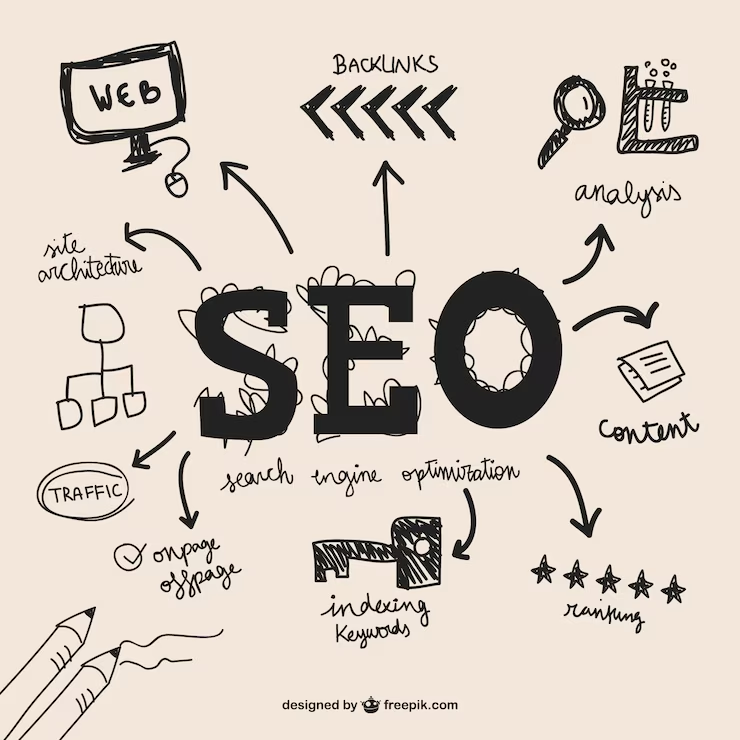In the world of digital marketing, two strategies often stand out when it comes to driving traffic and boosting online visibility—Search Engine Optimization (SEO) and Pay-Per-Click (PPC) advertising. Both play a vital role in any marketing plan, but choosing the right one depends on your goals, budget, and timeline.
This detailed comparison will break down the key differences, advantages, disadvantages, and ideal use cases of both SEO and PPC, helping you decide the best fit for your business strategy.
Table of Contents SEO vs PPC
- What is SEO?
- What is PPC?
- Key Differences Between SEO and PPC
- Benefits of SEO
- Benefits of PPC
- Drawbacks of SEO
- Drawbacks of PPC
- SEO vs PPC: Cost Comparison
- SEO vs PPC: Speed and ROI
- When to Use SEO, PPC, or Both?
- Final Verdict
1. What is SEO?
Search Engine Optimization (SEO) is the process of optimizing a website to rank higher in organic (non-paid) search engine results. It involves improving content, technical elements, backlinks, and overall website performance.
Types of SEO:
- On-page SEO: Optimizing individual pages with targeted keywords, meta tags, headings, and content quality.
- Off-page SEO: Building backlinks and authority through external sources.
- Technical SEO: Enhancing website performance such as page speed, mobile responsiveness, and crawlability.
2. What is PPC?
Pay-Per-Click (PPC) advertising allows businesses to bid for ad placement in a search engine’s sponsored links. Advertisers pay a fee every time someone clicks on their ad.
Popular PPC Platforms:
- Google Ads
- Bing Ads
- Facebook Ads
- LinkedIn Ads
- Instagram Ads
3. Key Differences Between SEO and PPC
| Factor | SEO | PPC |
|---|---|---|
| Cost | Free clicks, investment in content | Pay for each click |
| Visibility | Organic search results | Paid ad spots above organic results |
| Time to Results | Takes time (3–6 months) | Immediate |
| Trust & Credibility | High (trusted by users) | Lower than organic results |
| ROI | Long-term gain | Short-term gain |
4. Benefits of SEO
1. Long-Term Results
Once your site ranks, it can maintain traffic without ongoing costs.
2. Higher Click-Through Rate (CTR)
Users often trust organic listings more than ads, leading to higher engagement.
3. Cost-Effective
After the initial investment in optimization, traffic comes without additional spend.
4. Improved User Experience
SEO encourages better site structure, faster loading, and more relevant content.
5. Builds Brand Authority
Ranking organically builds authority and trust in your niche.
5. Benefits of PPC
1. Immediate Visibility
You can get top placement on search engines within hours.
2. Highly Targeted Traffic
Target users by location, age, interests, keywords, and device.
3. Precise Budget Control
Set daily or monthly limits, making spending predictable.
4. Advanced Analytics
PPC platforms provide real-time data and performance metrics.
5. A/B Testing Friendly
Run multiple ad variations and optimize quickly based on results.
6. Drawbacks of SEO
- Takes Time: SEO can take months to see noticeable results.
- Algorithm Changes: Search engines frequently update algorithms, affecting rankings.
- Requires Consistent Effort: Content updates and link building must be ongoing.
- Highly Competitive: Ranking for competitive keywords is challenging and resource-intensive.
7. Drawbacks of PPC
- Costly Over Time: Long-term PPC campaigns can become expensive.
- No Lasting Value: Once the ad budget stops, traffic disappears.
- Click Fraud Risk: Bots or competitors may click your ads maliciously.
- Lower Credibility: Users know ads are paid, which may reduce trust.
8. SEO vs PPC: Cost Comparison
While SEO requires investment in quality content and optimization, it doesn’t charge per visitor. Over time, the cost-per-click (CPC) becomes negligible.
PPC, on the other hand, offers immediate traffic but at a recurring cost. High-competition industries can have very high CPCs, sometimes exceeding $50 per click.
9. SEO vs PPC: Speed and ROI
| Metric | SEO | PPC |
|---|---|---|
| Time to Results | 3–6 months | Immediate |
| Duration of Effect | Long-lasting | Ends with campaign |
| ROI | Increases over time | Immediate, but drops without spend |
SEO is a long-term strategy ideal for sustainable traffic. PPC is best for quick conversions, events, and product launches.
10. When to Use SEO, PPC, or Both?
Use SEO When:
- You want long-term visibility and growth.
- You have time and resources to invest in content.
- You’re building brand authority.
Use PPC When:
- You need quick results.
- You are launching a new product.
- You want to test new offers or keywords.
Use Both When:
Combining SEO and PPC is often the best strategy. While SEO builds organic traffic over time, PPC can fill the gap and provide insights into what works. Data from PPC can even inform your SEO keyword strategy.
11. Final Verdict
There is no universal answer to SEO vs PPC—it entirely depends on your business goals, budget, and marketing timeline.
- If you’re looking for sustainable growth and organic visibility, SEO is your best bet.
- If your aim is immediate traffic and short-term gains, PPC provides the speed you need.
- Ideally, a hybrid strategy leveraging both can maximize reach and ROI.
Conclusion
Choosing between SEO and PPC is not about picking a winner but finding the right balance for your business. SEO lays the foundation for long-term authority and visibility, while PPC delivers quick, targeted traffic. Understanding both and using them strategically can skyrocket your digital marketing results.

